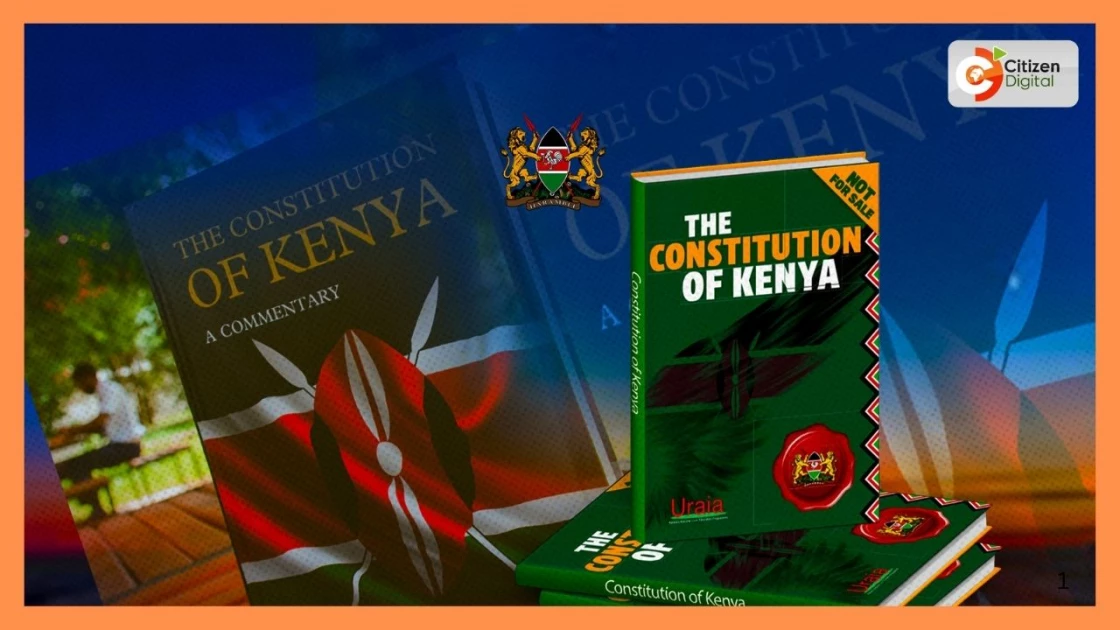Katiba Day: Hits and misses of the 2010 Constitution 15 years later


Audio By Vocalize
Public participation remains one of the most overlooked aspects of the 2010 Constitution.
Constitutional experts say Kenyans are still being left out
of key legislative, policy, and decision-making processes.
The standoff between counties and the national government
over revenue allocation has also been flagged as a key stumbling block to fully
realising the promise of devolution. Still, constitutional scholars believe the
road ahead holds greater promise than the years past.
Born on August 27, 2010, the Constitution was a beacon of
hope, pages inked with the dreams of a nation breaking free from its dark past,
a new dawn, a living promise that power would now flow from the people, not
just to a privileged few.
The live document bearing rights never seen before, drew
borders around authority, and whispered to the forgotten: you belong.
For 15 years, it has stood as both shield and mirror,
sometimes honoured, sometimes ignored.
It laid the foundation for devolution, decentralising power
from Nairobi to 47 counties, and in doing so, planted seeds of transformation.
“People had to travel long distances to get many
documents… some had to come to Nairobi. Now they do not have to. Devolution has
also brought in schools, different levels of hospitals… lots of women had to die,
” said Dr. Koki Muli, a Constitutional Expert.
The Constitution birthed independent institutions to guard
the rule of law: a restructured judiciary, the Supreme Court, watchdog bodies
like the EACC and IPOA, and a reformed IEBC.
“We had this problem of decentralisation of power, what
was called an imperial presidency, and as a result, the framers of the
Constitution decided to have these independent bodies to check the Executive,”
lawyer Prof. Kivutha Kibwana stated.
Dr. Koki Muli added, “Thanks to the judiciary, BBI
did not succeed. And all other attempts like Punguza Mzigo, even the latest one—the
NADCO report—all these attempts to overhaul the Constitution for expediency or
political gain have failed. We have a judiciary that has stuck to the oath of
office they took. Unfortunately, you cannot say the same about the other arms
of government.”
Yet, major challenges persist, especially in actualising
meaningful public participation, one of the Constitution’s core principles.
“Public participation is not an ornament. It is a value
addition and a value proposition for the people of Kenya. And it is not about
ticking boxes. You don’t just go and say, ‘We have submitted this to public
participation, it’s done,’” argued Dr Muli.
Experts also see the fight against corruption as just talk,
since the Ethics and Anti-Corruption Commission cannot take cases to court.
“There are actually problems in terms of the political
will to fight corruption. I think wealth declaration should be made public,
because you see people going to interviews and they say what their wealth is.
There should even be lifestyle audits, and we should also have open
procurement, because that is where corruption hides and resides,” said Prof
Kibwana.
Another persistent challenge lies in the division of revenue
between national and county governments.
“It is like the governors have to beg the national
government for their share of revenue. Once the budget is passed and it’s
appropriated, then what becomes the problem? This, to me, is an issue of
prioritising expenditure and trying to use national resources for political
mileage,” Dr Koki noted.
The right to protest, enshrined in the Constitution, has
also seen major setbacks in recent years.
Dr. Koki Muli argued: “We were all in tears
watching what we thought would be the one livelihood that would safeguard
Kenyans being thrown on the side, having visions that we saw in the 90s and 80s
in 2023, 2024, 2025. A lot of people like me are feeling paralysed by the
violations of this Constitution and getting that sense of ‘mtadu?’”
Vice Chairperson, Council of Governors, Mutahi Kahiga, on
his part, said: “We are still struggling with devolved functions that are
stuck at the national government. We are still involved with the national
government trying to bulldoze into county governments’ territory.”


Leave a Comment